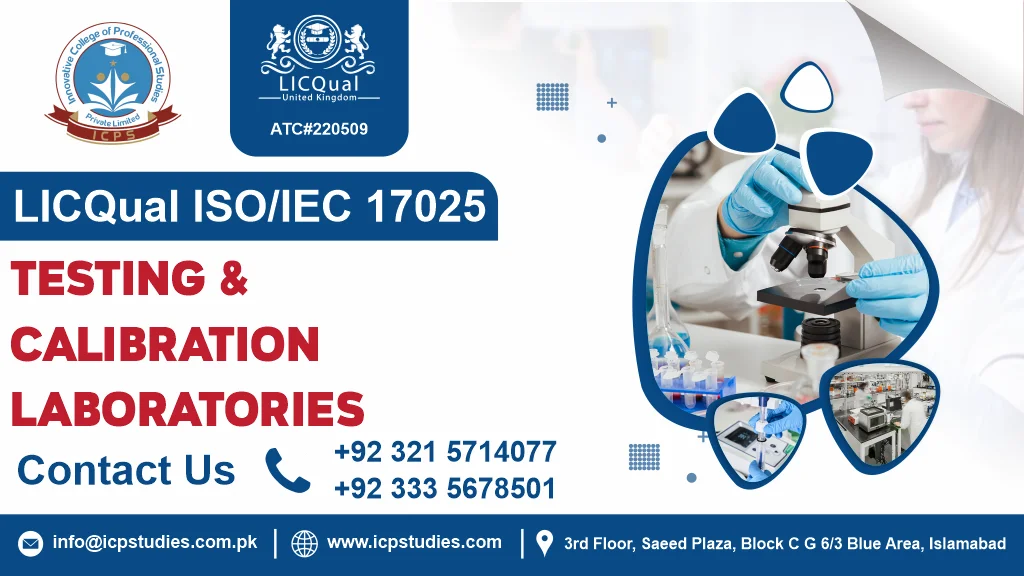In the ever-evolving landscape of quality assurance and precision, ISO/IEC 17025 stands as a beacon of excellence for testing and calibration laboratories. This international standard defines the requirements for the competence of testing and calibration laboratories and serves as a crucial framework for ensuring accurate and reliable results. For organizations looking to achieve or maintain ISO/IEC 17025 accreditation, the role of a Lead Implementer is pivotal.
Lead Implementer is the linchpin in the successful implementation of ISO/IEC 17025 in testing and calibration laboratories. Their expertise and dedication drive the process of achieving high standards of quality and reliability, ensuring that the laboratory can deliver precise and trustworthy results. As industries continue to demand higher levels of accuracy and competence, the role of the Lead Implementer remains as vital as ever in navigating the complex landscape of laboratory accreditation.
All About ISO IEC 17025 Testing and Calibration Laboratories Lead Implementer
Course Overview
An ISO/IEC 17025 Testing and Calibration Laboratories Lead Implementer is a specialized professional responsible for guiding and overseeing the implementation and maintenance of the ISO/IEC 17025 standard within a testing or calibration laboratory. This role is crucial for laboratories seeking to achieve or uphold ISO/IEC 17025 accreditation, which is a global benchmark for competence and quality in laboratory operations.
The Lead Implementer plays a vital role in ensuring that a laboratory not only achieves ISO/IEC 17025 accreditation but also maintains it over time. Their expertise helps the laboratory meet the stringent requirements of the standard, enhances the credibility and reliability of the laboratory’s results, and supports its reputation in the global marketplace.
Study Units
- Introduction to ISO/IEC 17025
- Management Requirements
- Technical Requirements
- Quality System Implementation
- Internal Auditing
- Management Review
- Documentation and Record Keeping
- Competence and Training
- Measurement Uncertainty
- Corrective and Preventive Actions
To enroll in the LICQual ISO/IEC 17025 Testing and Calibration Laboratories Lead Implementer Course, candidates should meet the following entry requirements:
- Educational Background:
- A minimum of a Level 4 qualification or equivalent in a relevant field (e.g., engineering, science, laboratory management).
- Professional Experience:
- At least two years of experience in a testing or calibration laboratory environment. This experience should include involvement in quality management systems and laboratory processes.
- Understanding of ISO/IEC 17025:
- Familiarity with ISO/IEC 17025 and related standards is highly recommended. A foundational understanding can be demonstrated through prior training or professional experience.
- Basic Knowledge of Quality Management Principles:
- An understanding of quality management principles and practices is advantageous.
- Language Proficiency:
- Proficiency in English (or the language of instruction) to ensure comprehension of course materials and active participation in discussions.
- Commitment to Learning:
- A willingness to engage actively in the learning process, including participation in group activities and practical exercises.
Meeting these requirements will help ensure that participants gain the most from the course and are well-prepared to undertake the responsibilities of a lead implementer in testing and calibration laboratories. If you have any questions about your eligibility or need assistance, please contact our course coordinator for guidance.
The LICQual ISO/IEC 17025 Testing and Calibration Laboratories Lead Implementer Course is designed for a range of professionals involved in testing and calibration laboratories. This course is ideal for:
- Laboratory Managers: Individuals responsible for overseeing laboratory operations and ensuring compliance with quality standards.
- Quality Assurance Managers: Professionals focused on maintaining and improving quality management systems within laboratories.
- Laboratory Technicians: Those involved in conducting tests and calibrations who wish to enhance their understanding of quality management principles.
- Compliance Officers: Individuals ensuring that laboratory practices meet regulatory and accreditation requirements.
- Quality Control Inspectors: Professionals tasked with evaluating and ensuring the accuracy and reliability of test results.
- Technical Managers: Those overseeing technical operations in laboratories who need a solid grasp of ISO/IEC 17025 requirements.
- Consultants: Individuals providing advisory services in laboratory management and quality systems, looking to deepen their expertise.
- Anyone Interested in Laboratory Standards: Individuals seeking to enhance their knowledge of testing and calibration standards and improve their career prospects in this field.
This course equips participants with the necessary skills to implement and manage an effective quality management system in testing and calibration laboratories, ensuring accurate results and compliance with ISO/IEC 17025 standards.
Learning Outcome
1. Introduction to ISO/IEC 17025
Learning Outcomes:
- Understand the scope and purpose of ISO/IEC 17025 and its significance in testing and calibration laboratories.
- Describe the history and evolution of ISO/IEC 17025 and its role in global standardization.
- Identify the structure and key elements of the ISO/IEC 17025 standard.
- Explain the benefits and implications of ISO/IEC 17025 accreditation for laboratories and their stakeholders.
2. Management Requirements
Learning Outcomes:
- Define the management requirements outlined in ISO/IEC 17025.
- Explain the importance of leadership, commitment, and resource management in maintaining laboratory quality.
- Analyze the roles and responsibilities of management in ensuring compliance with ISO/IEC 17025.
- Develop strategies for effective management of laboratory operations to meet the standard’s requirements.
3. Technical Requirements
Learning Outcomes:
- Describe the technical requirements of ISO/IEC 17025 and their relevance to laboratory testing and calibration.
- Explain how to ensure the competence of laboratory staff, equipment, and methods in accordance with ISO/IEC 17025.
- Identify methods for validating and verifying laboratory processes and results.
- Demonstrate the ability to apply technical requirements to maintain the accuracy and reliability of laboratory results.
4. Quality System Implementation
Learning Outcomes:
- Understand the principles of implementing a quality management system in a laboratory setting.
- Develop a comprehensive quality system plan that aligns with ISO/IEC 17025 requirements.
- Identify key elements of a quality system, including procedures, controls, and performance metrics.
- Evaluate the effectiveness of the quality system and implement improvements as needed.
5. Internal Auditing
Learning Outcomes:
- Define the purpose and scope of internal auditing within the context of ISO/IEC 17025.
- Develop an internal audit plan, including scope, objectives, and criteria.
- Conduct internal audits to assess compliance with ISO/IEC 17025 and identify areas for improvement.
- Analyze audit findings and report results to management, recommending corrective actions as necessary.
6. Management Review
Learning Outcomes:
- Explain the role of management reviews in maintaining compliance with ISO/IEC 17025.
- Develop a framework for conducting effective management reviews, including inputs, outputs, and follow-up actions.
- Assess the effectiveness of the quality management system through management review meetings.
- Identify and address issues or opportunities for improvement identified during management reviews.
7. Documentation and Record Keeping
Learning Outcomes:
- Understand the documentation requirements of ISO/IEC 17025, including types of documents and records needed.
- Develop and maintain accurate and up-to-date documentation and records in line with the standard.
- Implement document control procedures to ensure the integrity and accessibility of laboratory documents.
- Evaluate the effectiveness of documentation and record-keeping practices and make necessary improvements.
8. Competence and Training
Learning Outcomes:
- Define the requirements for staff competence and training according to ISO/IEC 17025.
- Develop and implement training programs to ensure that laboratory personnel have the necessary skills and knowledge.
- Assess the effectiveness of training and competence management processes.
- Identify strategies for addressing skills gaps and ensuring ongoing professional development for laboratory staff.
9. Measurement Uncertainty
Learning Outcomes:
- Explain the concept of measurement uncertainty and its importance in the context of ISO/IEC 17025.
- Develop methods for calculating and reporting measurement uncertainty for various laboratory processes.
- Apply techniques for minimizing and managing measurement uncertainty to enhance the reliability of results.
- Analyze and interpret measurement uncertainty data to support decision-making and quality assurance.
10. Corrective and Preventive Actions
Learning Outcomes:
- Define corrective and preventive actions and their role in maintaining ISO/IEC 17025 compliance.
- Develop procedures for identifying, investigating, and addressing non-conformities and potential issues.
- Implement corrective and preventive actions to resolve issues and prevent recurrence.
- Monitor and review the effectiveness of corrective and preventive actions and adjust strategies as needed.
These learning outcomes provide a clear understanding of what participants should know and be able to do upon completing each study unit, ensuring they gain the necessary skills and knowledge to effectively implement and maintain ISO/IEC 17025 standards in their laboratories.
FAQs about ISO IEC 17025 Testing and Calibration Laboratories Lead Implementer







